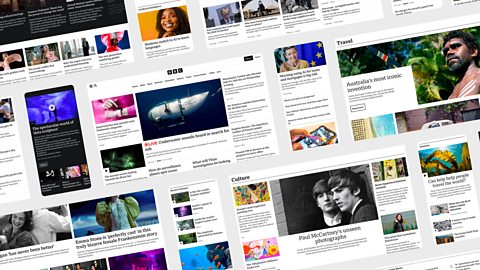News Websites Can Be Fun For Anyone
News Websites Can Be Fun For Anyone
Blog Article
The Ultimate Guide To News Websites
Table of ContentsThe Ultimate Guide To News WebsitesNews Websites Things To Know Before You Get ThisThe 10-Second Trick For News WebsitesExamine This Report on News WebsitesNews Websites Can Be Fun For Anyone
It was down in the UK and Brazil yet up a few other nations, such as Greece, Bulgaria, and Poland (News Websites). This year, for the very first time, we inquired about the various means that individuals prevent the news and found that around half of avoiders (53%) were trying to do so in a broad-brush or periodic way for instance, by shutting off the radio when the information began, or by scrolling past the information in social mediaYou stated that you attempt to actively stay clear of information.

I'm possibly selecting to find out more light-hearted stories than I used to right now. M, 51, UK Switching my back on news is the only means I feel I can deal often. I have to consciously make the initiative to avert for my own psychological wellness.
The Definitive Guide for News Websites
Careful evasion of Ukraine news was greatest in a lot of the nations closest to the conflict, enhancing findings from our added survey last year, not long after the battle had actually started. Our data may not suggest a lack of rate of interest in Ukraine from neighboring nations however instead a need to manage time or safeguard mental health and wellness from the extremely actual scaries of battle.
Contrasting Finland with a politically polarised nation such as the USA (see following graph) that is much less affected by the war, we find a very different pattern of topic avoidance. In the United States, we find that consumers are a lot more most likely to stay clear of topics such as nationwide politics and social justice, where arguments over problems such as gender, sexuality, and race have ended up being extremely politicised.
American national politics are quite hazardous nowadays. I discover often that I need to detach from stories that just make me angry. F, 61, United States For some people, bitter and disruptive political discussions are a factor to switch off news entirely, but for some political partisans, evasion is often concerning shutting out point of views you don't intend to hear.

The News Websites Statements
Some are wanting to make information much more accessible for hard-to-reach teams, broadening the information agenda, commissioning even more inspiring or favorable information, or embracing positive or solutions journalism that provide individuals a sense of hope or individual agency. In our survey this Read Full Report year, we asked participants regarding their interest in these various techniques.
This explains why stories like Ukraine or nationwide politics perform well with news regulars however can at the very same time turn less interested individuals away (News Websites). Discerning avoiders are less thinking about all types of news than non-avoiders yet in relative terms they do seem to be much more curious about positive or solutions-based news

News Websites for Dummies
2023). This might be true in the moment, yet in time it appears to be leaving lots of people vacant and less satisfied, which might be undermining our link with and count on in the news. Throughout markets, overall rely on news (40%) and trust fund in the sources individuals use themselves (46%) are down by a better 2 portion factors this year.
Undoubtedly, through the rear-view mirror, the COVID-19 depend on bump is see here plainly visible in the adhering to chart, though the instructions of traveling later on has actually been mixed. Sometimes (e.g. Finland), the trust fund increase has been kept, while in others the upturn looks even more like a blip in a tale of ongoing long-term decline.
Several of the highest reported degrees of media objection are found in countries with highest degree of mistrust, such as Greece, the Philippines, the USA, France, and the UK. The lowest levels of media objection frequent those with greater degrees of count on, such as Finland, Norway, Denmark, and Japan.
Some Known Factual Statements About News Websites
This year we asked participants concerning their choices for text, audio and video clip when eating information online. Usually, we find that the bulk still favor to review the information (57%), instead of watch (30%) or pay attention to it (13%), however younger people (under-35s) are more probable to listen (17%) than older groups.
Behind the standards we discover substantial and shocking nation differences. In markets with a solid reading tradition, such as Finland and the UK, around 8 in helpful hints ten still favor to check out online information, however in India and Thailand, around four in 10 (40%) state they prefer to see news online, and in the Philippines that percentage mores than half (52%).
Report this page